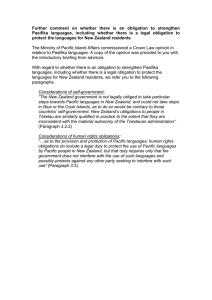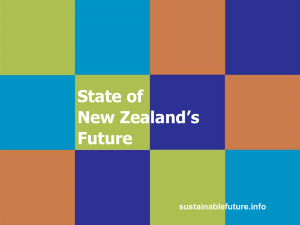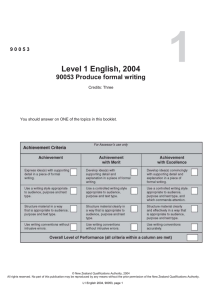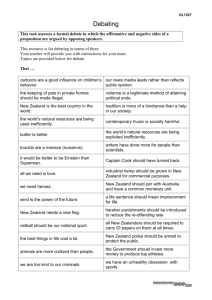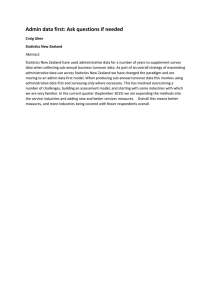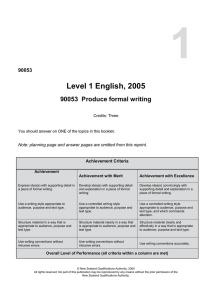12653926_JCobley_Migrant presentation_U3A.docx (12.64Kb)
advertisement
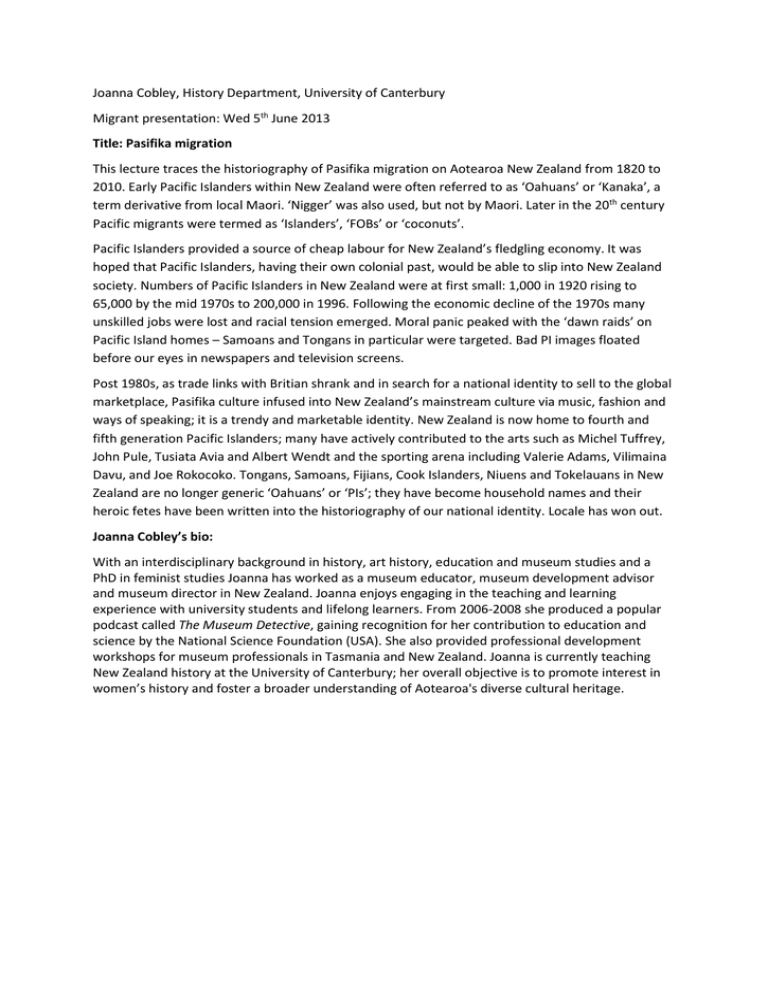
Joanna Cobley, History Department, University of Canterbury Migrant presentation: Wed 5th June 2013 Title: Pasifika migration This lecture traces the historiography of Pasifika migration on Aotearoa New Zealand from 1820 to 2010. Early Pacific Islanders within New Zealand were often referred to as ‘Oahuans’ or ‘Kanaka’, a term derivative from local Maori. ‘Nigger’ was also used, but not by Maori. Later in the 20th century Pacific migrants were termed as ‘Islanders’, ‘FOBs’ or ‘coconuts’. Pacific Islanders provided a source of cheap labour for New Zealand’s fledgling economy. It was hoped that Pacific Islanders, having their own colonial past, would be able to slip into New Zealand society. Numbers of Pacific Islanders in New Zealand were at first small: 1,000 in 1920 rising to 65,000 by the mid 1970s to 200,000 in 1996. Following the economic decline of the 1970s many unskilled jobs were lost and racial tension emerged. Moral panic peaked with the ‘dawn raids’ on Pacific Island homes – Samoans and Tongans in particular were targeted. Bad PI images floated before our eyes in newspapers and television screens. Post 1980s, as trade links with Britian shrank and in search for a national identity to sell to the global marketplace, Pasifika culture infused into New Zealand’s mainstream culture via music, fashion and ways of speaking; it is a trendy and marketable identity. New Zealand is now home to fourth and fifth generation Pacific Islanders; many have actively contributed to the arts such as Michel Tuffrey, John Pule, Tusiata Avia and Albert Wendt and the sporting arena including Valerie Adams, Vilimaina Davu, and Joe Rokocoko. Tongans, Samoans, Fijians, Cook Islanders, Niuens and Tokelauans in New Zealand are no longer generic ‘Oahuans’ or ‘PIs’; they have become household names and their heroic fetes have been written into the historiography of our national identity. Locale has won out. Joanna Cobley’s bio: With an interdisciplinary background in history, art history, education and museum studies and a PhD in feminist studies Joanna has worked as a museum educator, museum development advisor and museum director in New Zealand. Joanna enjoys engaging in the teaching and learning experience with university students and lifelong learners. From 2006-2008 she produced a popular podcast called The Museum Detective, gaining recognition for her contribution to education and science by the National Science Foundation (USA). She also provided professional development workshops for museum professionals in Tasmania and New Zealand. Joanna is currently teaching New Zealand history at the University of Canterbury; her overall objective is to promote interest in women’s history and foster a broader understanding of Aotearoa's diverse cultural heritage.
